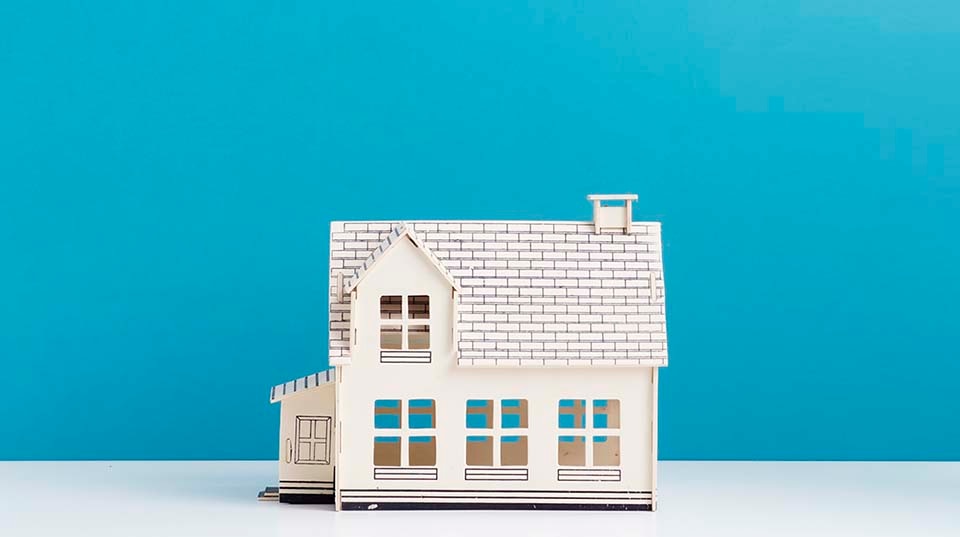Should You Pay Off a Mortgage Before You Retire?

If you’re like most people, paying off your mortgage and entering retirement debt-free sounds pretty appealing. It’s a significant accomplishment and means the end of a major monthly expense. However, for some homeowners, their financial situation and goals might call for keeping a mortgage while attending to other priorities.
Let’s look at the reasons why you might—or might not—decide to pay off a mortgage before you retire.
You might want to pay off your mortgage early if …
- You’re trying to reduce your baseline expenses: If your monthly mortgage payment represents a substantial chunk of your expenses, you’ll be able to live on a lot less once the payment goes away. This can be particularly helpful if you have a limited income.
- You want to save on interest payments: Depending on a home loan’s size and term, the interest can cost tens of thousands of dollars over the long haul. Paying off your mortgage early frees up that future money for other uses. While it’s true you may lose the tax deduction on mortgage interest, you may still save a considerable amount on servicing the debt. You’ll have to reckon with a decreasing deduction anyway, as more of each monthly payment applies to the principal.
- Your mortgage rate is higher than the rate of risk-free returns: Paying off a debt that charges interest can be like earning a risk-free return equivalent to that interest rate. Compare your mortgage rate to the after-tax rate of return on a low-risk investment with a similar term—such as a high-quality, tax-free municipal bond issued by your home state. While mortgage rates are currently low, they’re still higher than interest rates on most types of bonds—including municipal bonds. In this situation, you’d be better off paying down the mortgage.
- You prioritize peace of mind: Paying off a mortgage can create one less worry and increase flexibility in retirement.
You might not want to pay off your mortgage early if …
- You need to catch up on retirement savings: If you completed a retirement plan and find you aren’t contributing enough to your 401(k), IRA, or other retirement accounts, increasing those contributions should probably be your top priority. Savings in these accounts grow tax-deferred until you withdraw them.
- Your cash reserves are low: “You don’t want to end up house rich and cash poor by paying off your home loan at the expense of your reserves,” says Rob Williams, managing director of financial planning at the Schwab Center for Financial Research. He recommends keeping a cash reserve of three to six months’ worth of living expenses in case of emergency.
- You carry higher-interest debt: Before you pay off your mortgage, first close out any higher-interest loans—especially nondeductible debt like that from credit cards. Create a habit of paying off credit card debt monthly rather than allowing the balance to build so that you’ll have fewer expenses when you retire.
- You might miss out on investment returns: If your mortgage rate is lower than what you’d earn on a low-risk investment with a similar term, you might consider keeping the mortgage and investing what extra you can.
- You need to diversify: Your house is just as much of an investment as what’s in your portfolio. And overconcentration carries its own risks—even when it’s in something as historically stable as a home. Maintaining your mortgage allows you to fund other asset classes with possibly more growth potential.
If you decide to pay your mortgage off before you retire
Ideally, you would accomplish your goal through regular payments. However, if you need to use a lump sum to pay off your mortgage, try to tap taxable accounts first instead of retirement savings. “If you withdraw money from a 401(k) or an individual retirement account (IRA) before 59½, you’ll likely pay ordinary income tax—plus a penalty—substantially offsetting any savings on your mortgage interest,” Rob says.
A middle ground
If your mortgage has no prepayment penalty, an alternative to paying it off entirely is to chip away at the principal. You can do this by making an extra principal payment each month or by sending in a partial lump sum. This tactic can save a significant amount of interest and shorten the life of the loan while maintaining diversification and liquidity. But avoid being too aggressive about it—lest you compromise your other saving and spending priorities.
“Have a plan where you can both invest and pay down principal on a mortgage before or early in retirement,” Rob says. “You don’t have to make an all-or-nothing decision.”
Should you refinance?
It wasn’t that long ago that some mortgage rates were near or above 5%. If you’ve been in your home for a few years and are paying the original loan, you might consider refinancing. Current interest rates are relatively low, and depending on the type of loan you have, refinancing might make sense for you.
If this is something you’re interested in pursuing, make sure you do a thorough cost-benefit analysis before pulling the trigger. Refinancing may not be a good idea if you plan to move soon or if closing costs and other loan expenses, such as fees or a new appraisal, would add to your financial burden. If you decide to refinance, though, avoid the temptation to take out more equity or increase your debt. The goal, ideally, should be to reduce debt on your primary home over time—not increase it.
What You Can Do Next
Talk to a Schwab Financial Consultant about striking the right balance for you or visit a branch near you.